Social Justice Theatre
Creating theatre with young people through a social justice lens so they can become agents of change in their lives and communities
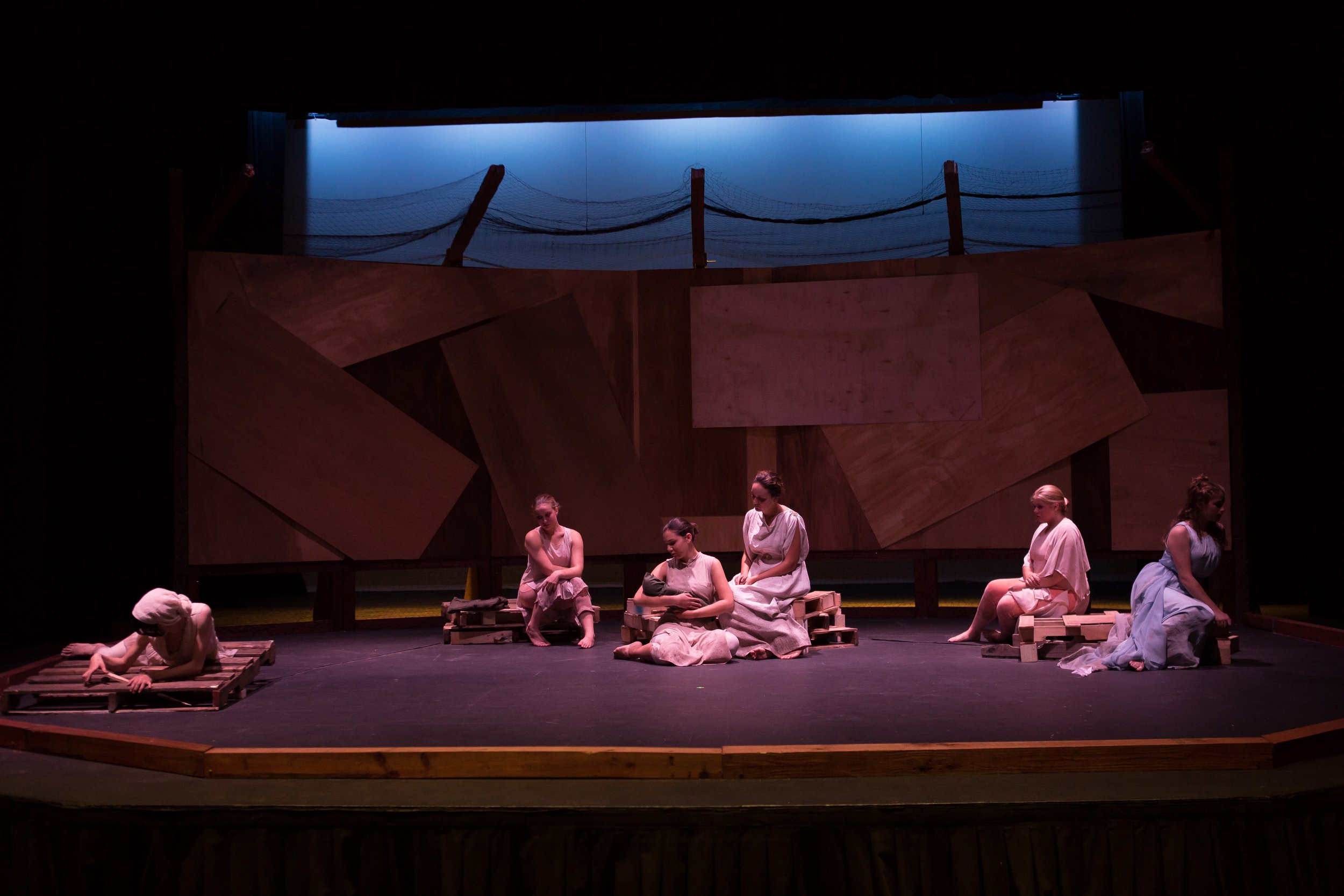
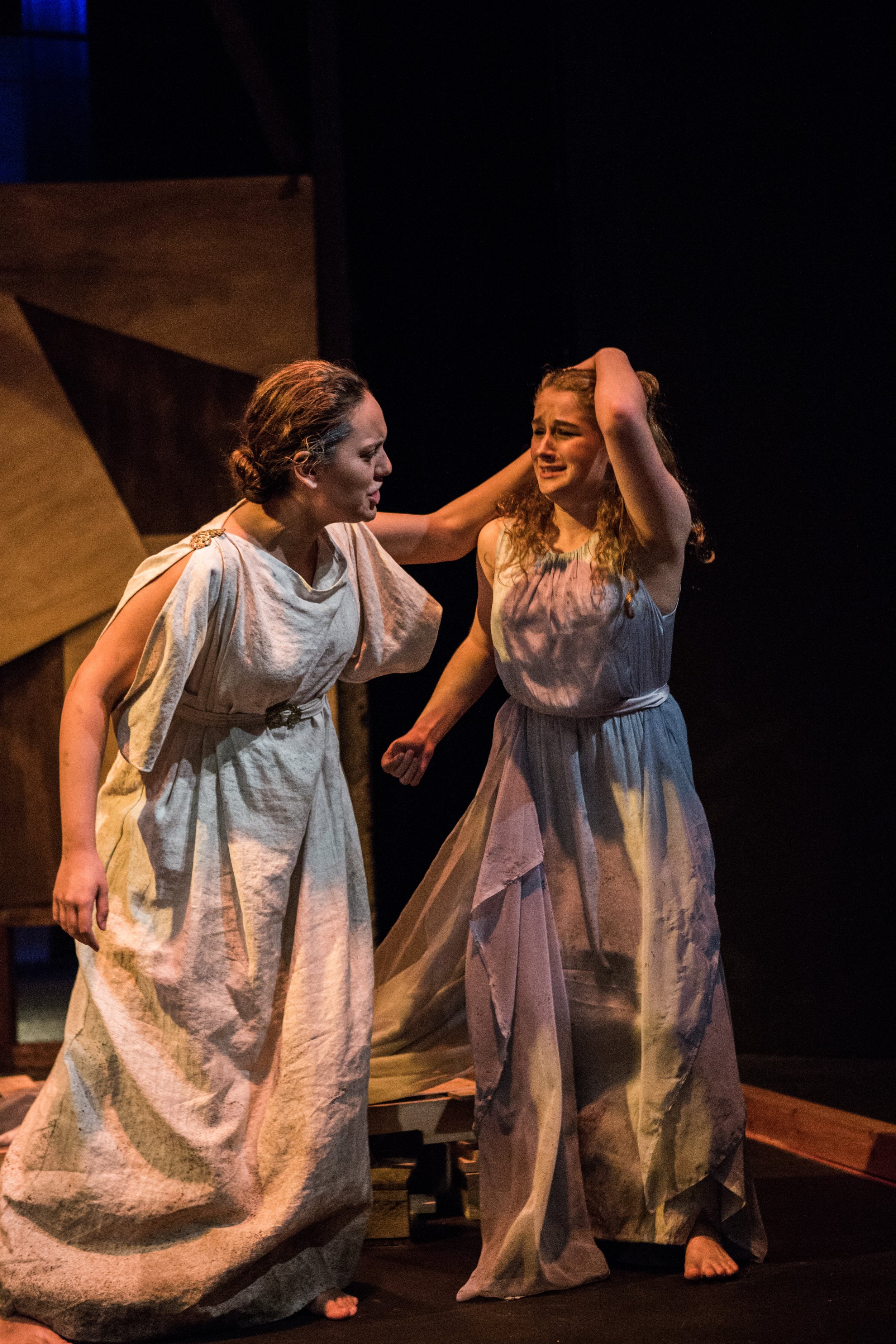
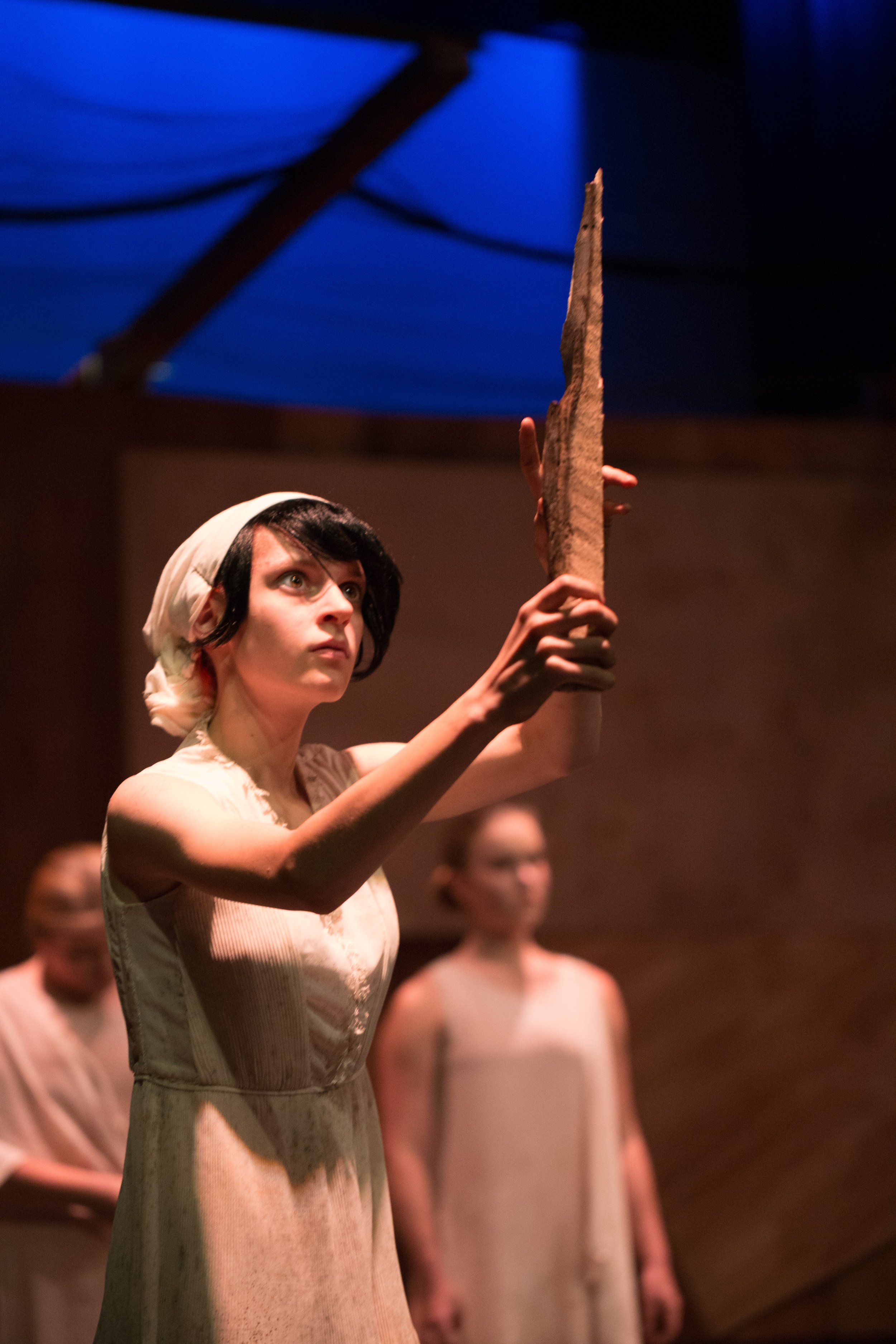

Euripides’ The Trojan Women. Fall 2015.
Set on the coast of what is now Turkey, Euripides’ Trojan Women is a scathing critique of the impact of war on women and children. In order to learn more about the history of the play, we hosted our very own Latin teacher who put Euripides’ work in the context of its time, specifically noting that the play was Euripides’ attempt to bring light to the war crimes Athens had just committed, which ultimately resulted in his excommunication from Greek society. Our production was a call to action about the Syrian refugee crisis which had reached a horrific peak in the months before we started rehearsals. We hosted Dr. Eleanora Mattiaci, an Amherst College political science professor, who spoke about the connection between climate change, civil war, and the refugee crisis. Students researched topics relevant to the play and its connection to our time which were published in the program and were the jumping off points for nightly post-show talkbacks. Students ran a fundraiser to support relief efforts for Syrian refugees.
Set and Lighting Design by Charles P. Raffetto. Costume Design by Ashley Tyler. Photo Credit: Joanna Chattman.
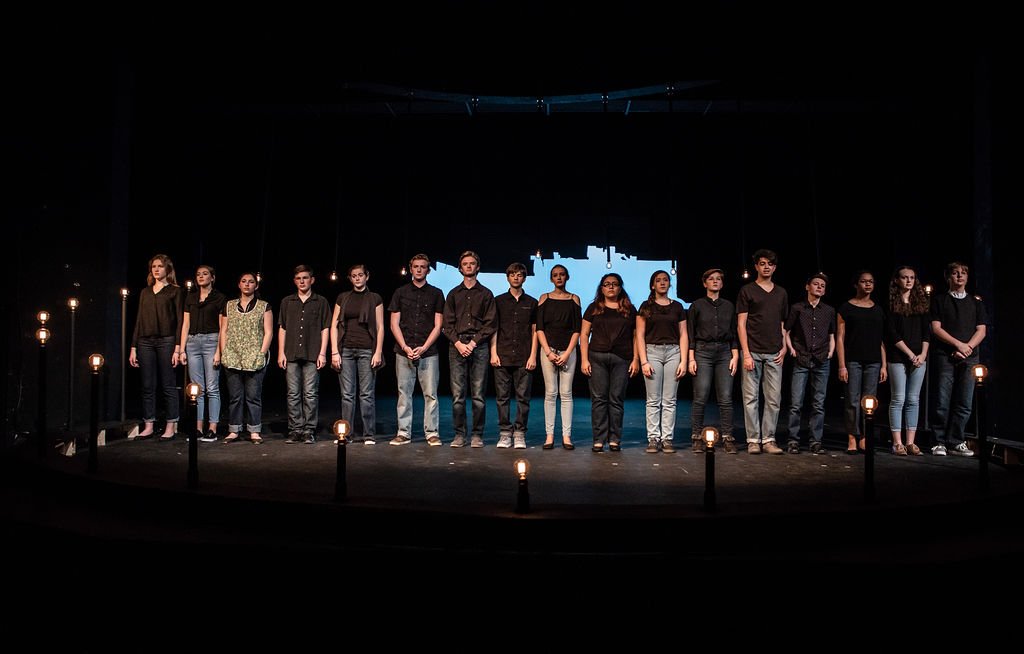
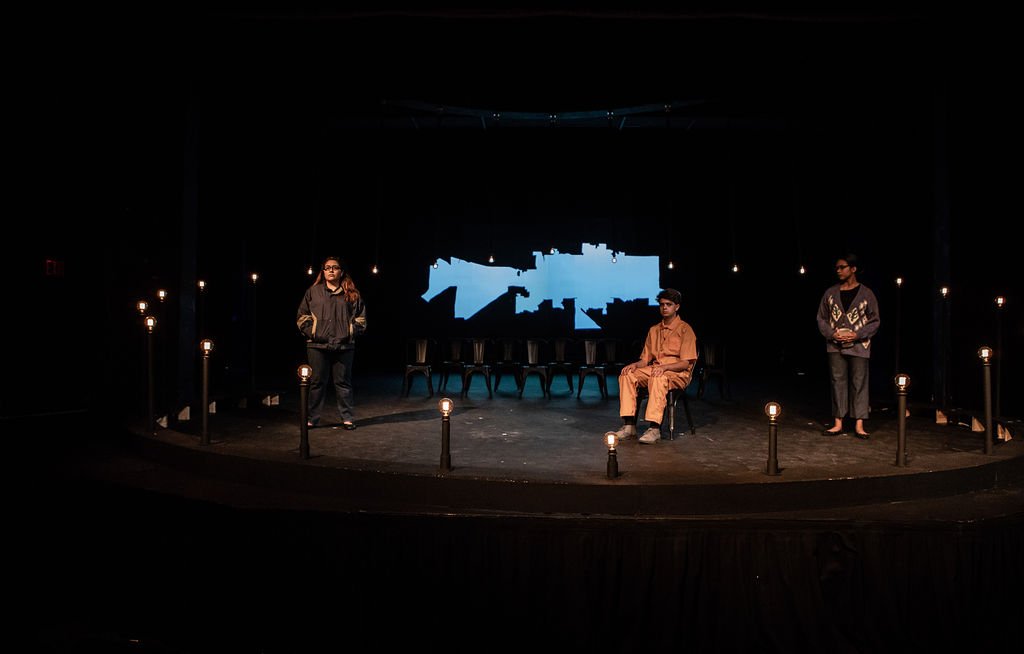


The Laramie Project by Moisés Kaufman and Members of the Tectonic Theatre Project. Fall 2018.
Four weeks after the brutal murder of Matthew Shepard, Moisés Kaufman and members of the Tectonic Theatre Project took what would be the first of six visits to Laramie, Wyoming, the site of his murder. During the aftermath of Matthew’s murder and the arrest and trial of the perpetrators, members of Tectonic conducted over two-hundred interviews with the citizens of the town. The Laramie Project is what resulted from those interviews. Every word you hear on the stage was said in an interview with Tectonic members, in a courtroom, or in another interview format. The play depicts the shocking depth to which people can hate. You hear opinions of people with which you do not agree. Kaufman and Tectonic believe in giving those voices a place on the stage. When we listen to each other we are steps closer to understanding which is what begins to erode the seeds of hatred. All theatre is a community endeavour, but The Laramie Project is even more so. The play demands engagement from its audience and the community in which it is being performed. In that spirit, we created social justice workshops across our campus, arranged a speaker series to address themes presented in the play, conducted a fundraiser for The Matthew Shepard Foundation, educated our community through nightly talk-backs after our show, and provided the school community with numerous ways to combat the roots of hatred and oppression. In addition, Leigh Fondakowski, founding member of Tectonic Theatre Project and lead writer for The Laramie Project, led our students in a Moment Workshop, the process by which Tectonic creates their work, and also shared her personal experience as a Queer woman creating Laramie.
Set and Lighting Design by Charles P. Raffetto. Costume Design by Ashley Tyler. Photo Credit: Joanna Chattman.
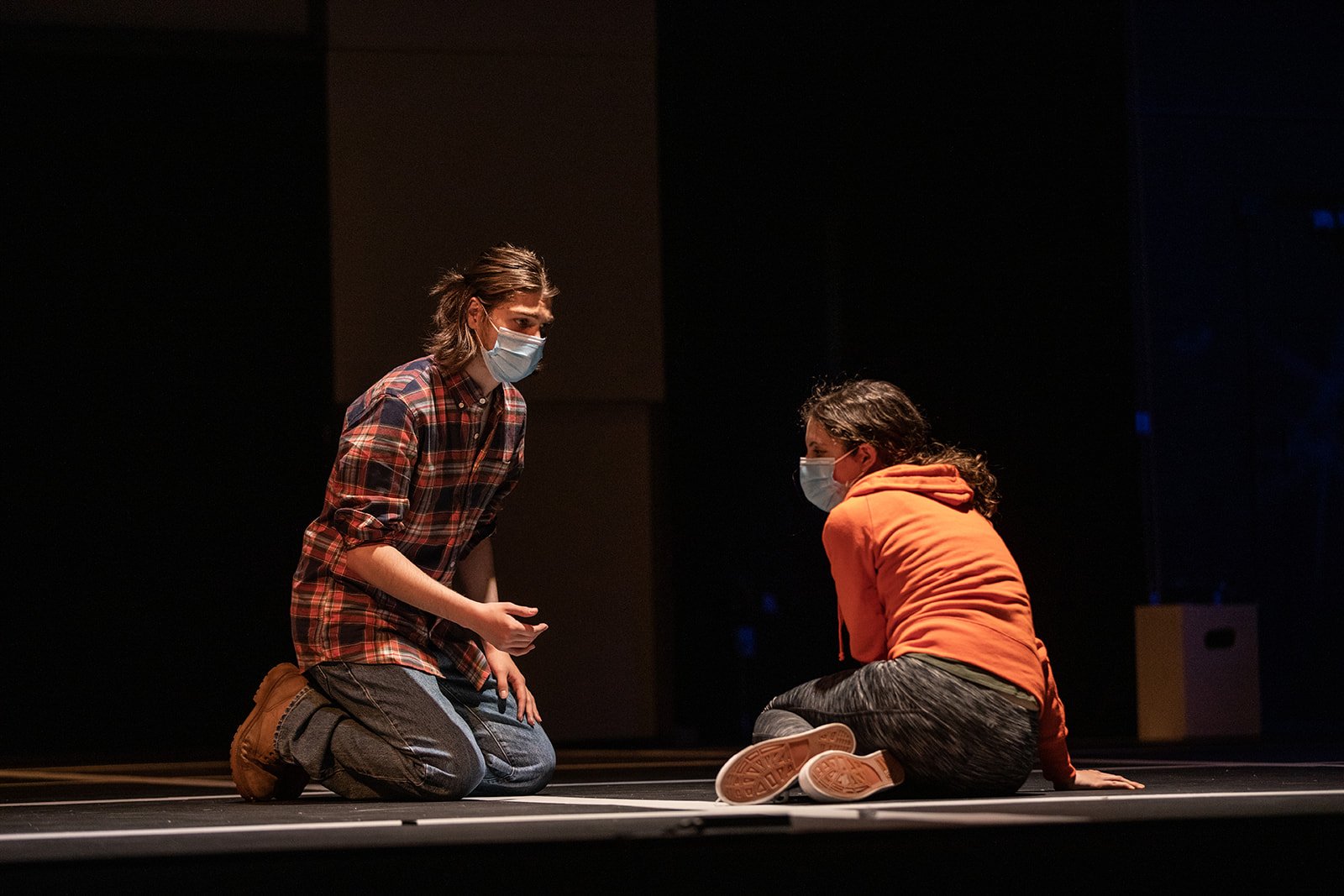
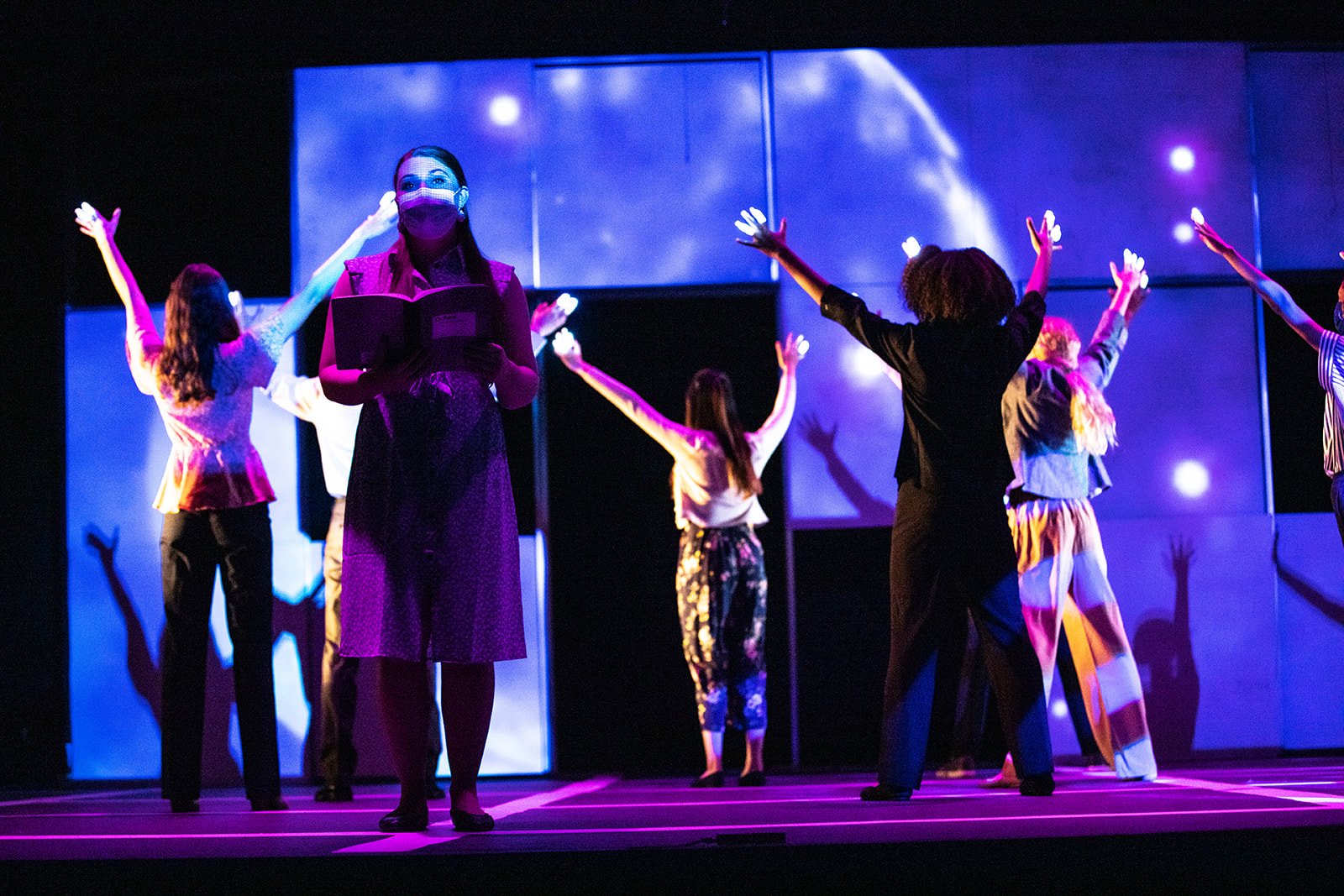
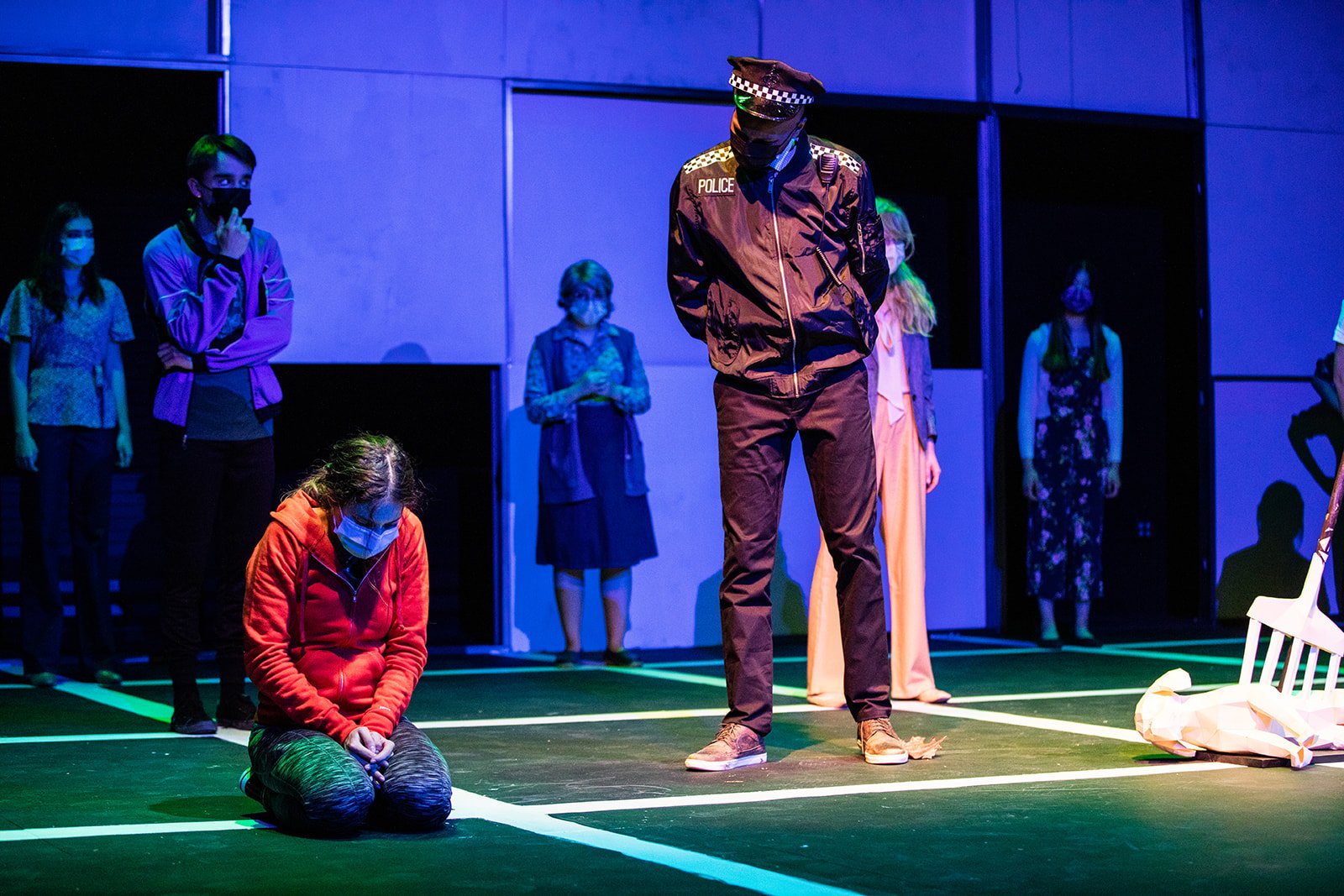
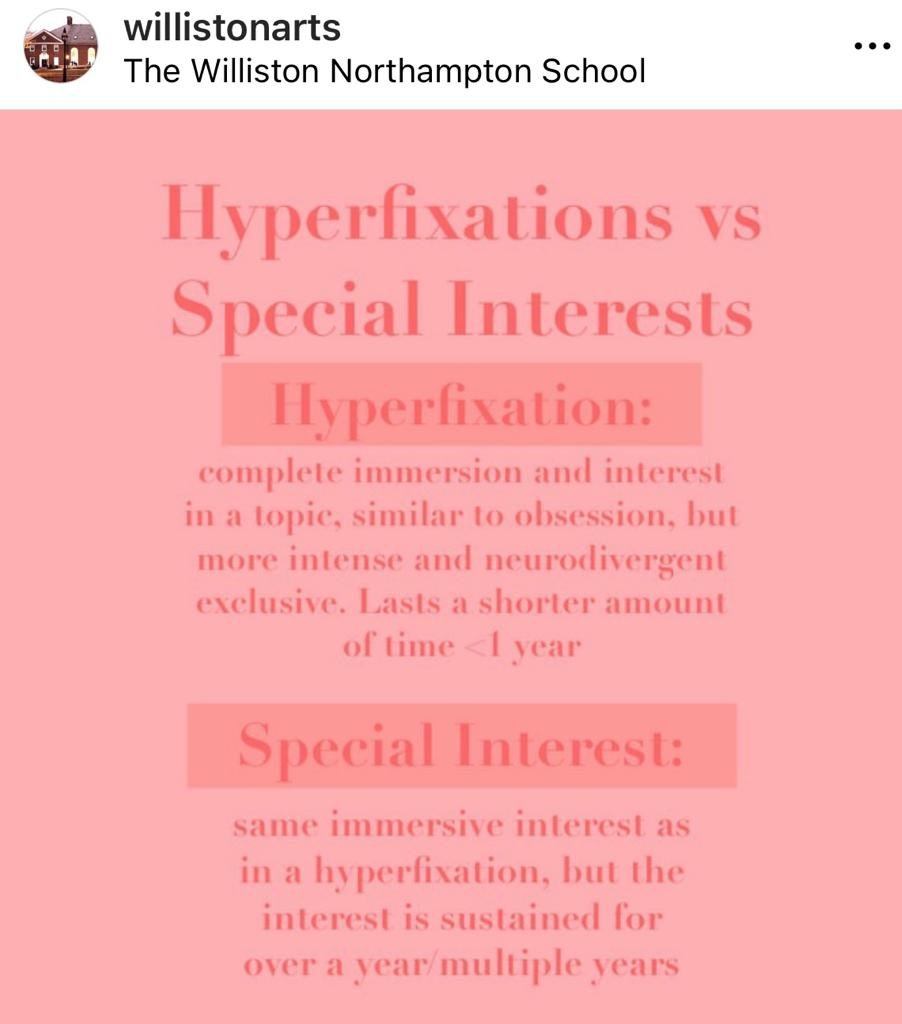
The Curious Incident of the Dog in the Nighttime, by Mark Haddon, adapted by Simon Stephens. Spring 2021.
15-year-old Christopher has an extraordinary brain: He is exceptional at mathematics. He is also on the autism spectrum. He has never ventured alone beyond the end of his road and he distrusts strangers. Now it is 7 minutes after midnight, and Christopher stands beside his neighbour’s dead dog, Wellington, who has been speared with a garden fork. Finding himself under suspicion, Christopher is determined to solve the mystery of who murdered Wellington, and he carefully records each fact of the crime. But his detective work, forbidden by his father, takes him on a thrilling journey that upturns his world. In conjunction with Autism awareness month, the cast and crew seized the opportunity to educate our community about ASD. Undetered by the COVID pandemic that put a stop to traditional community engagement events, students used school social media platforms, student assemblies, and videos to expand the school community’s understanding of what it’s like living with autism. This was a personal project for many who identify as neurodivergent and/or with ASD.
Set and Lighting Design by Charles P. Raffetto. Costume Design by Ashley Tyler. Movement Director: Debra D. Vega. Photo Credit: Joanna Chattman.